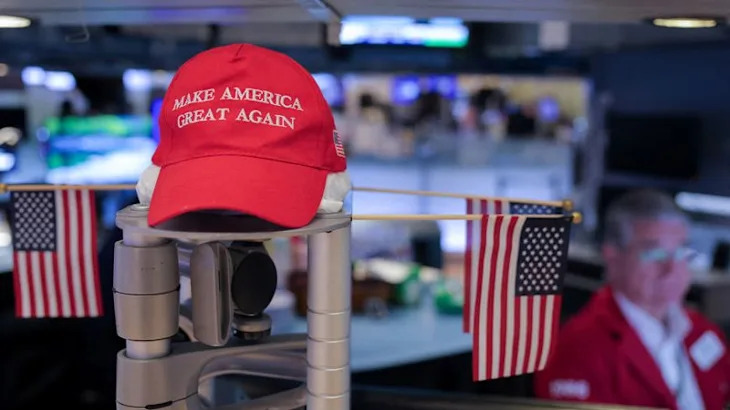
Broadening asset volatility intensifies worries for tariff-tossed US stocks
By Lewis Krauskopf
NEW YORK (Reuters) -Wild swings in global markets are poised to keep U.S. stock investors on edge in the coming week, as a weakening dollar and a selloff in Treasuries compound extreme equity volatility that erupted after President Donald Trump launched his sweeping tariffs.
The S&P 500 was set for solid gains on the week after Trump pulled back on the heftiest tariffs on many countries, relieving Wall Street's worst-case scenario. Still, the benchmark index still was down about 13% from its February 19 all-time closing high. Concerns about lasting economic damage remained as the U.S. and China ratcheted up their trade battle and questions lingered over levies elsewhere as Trump only paused many of the most severe tariffs.
Investors punished U.S. assets in the wake of Trump's tariffs, with the dollar plunging against other major currencies and benchmark U.S. Treasury yields, which move opposite to bond prices, surging.
The stock market is "very unsettled" as investors weigh how to price in any economic fallout from the changing tariff backdrop, said Mark Luschini, chief investment strategist at Janney Montgomery Scott.
The market is "kind of trapped by the level of uncertainty that lurks out there," Luschini said. "And therefore investors are largely unwilling to make big bets in one direction or another."
A volatile week in stocks was highlighted by Wednesday's 9.5% jump for the S&P 500, the index's biggest one-day rise since October 2008 during the heart of the financial crisis.
The Cboe Volatility index, an options-based measure of investor anxiety, stood at around 40, more than twice its historic median level.
Stock investors were warily watching moves across asset classes, in particular the dollar and Treasuries. An index that measures the dollar against a basket of currencies on Friday fell below 100 for the first time in nearly two years, while the yield on the benchmark 10-year Treasury was on pace for its biggest weekly jump in decades.
In many prior risk-off events, the dollar and Treasuries have acted as safe havens, but that has not been the case over the last week as stocks have tumbled, said Walter Todd, chief investment officer at Greenwood Capital in South Carolina.
“We are the reserve currency and the risk free asset of the world, and our markets are not acting as such," Todd said.
The yield on the 10-year Treasury on Friday topped 4.5%, which investors have cited as a level that could cause turbulence for stocks. Higher yields translate into higher borrowing costs for consumers and businesses, while potentially making bonds more competitive investments against stocks.